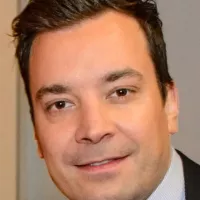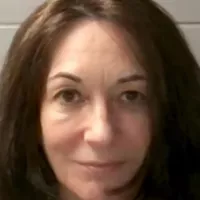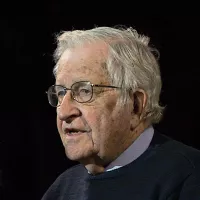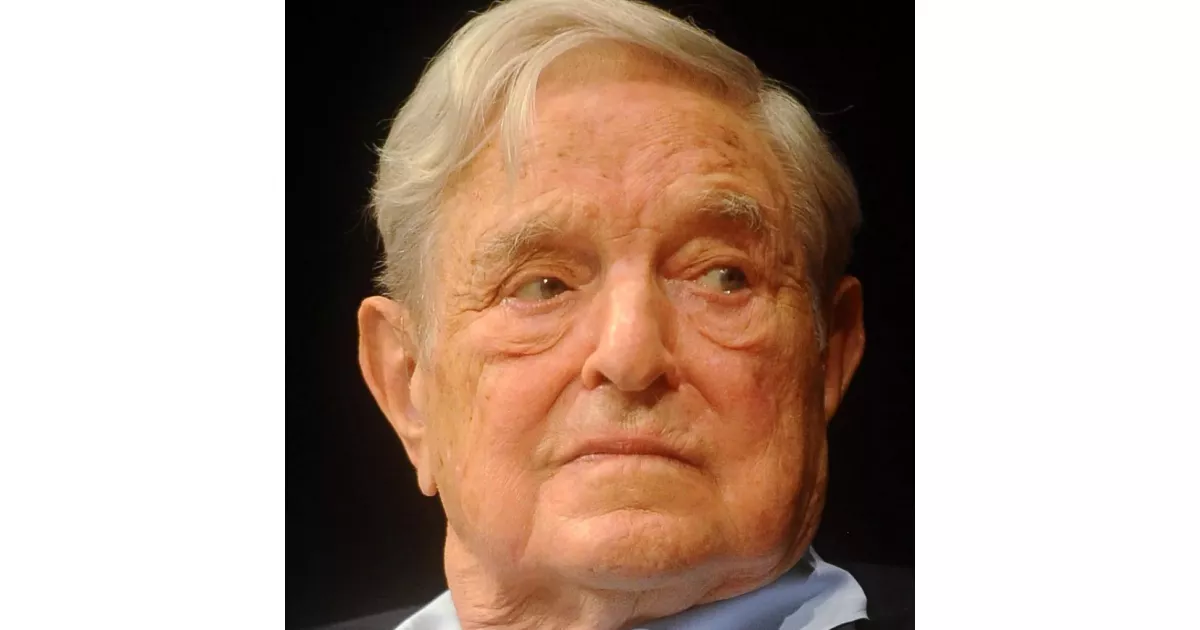How George Soros built a successful career. Explore key moments that defined the journey.
George Soros is a Hungarian-American investor and philanthropist with a net worth of $7.2 billion as of May 2025. He is renowned for his significant philanthropic contributions, having donated over $32 billion to the Open Society Foundations, with $15 billion already distributed. These donations represent 64% of his original fortune. In 2020, Forbes recognized Soros as the "most generous giver" based on the percentage of his net worth donated.
1973: Launch of Quantum Endowment Fund
In 1973, George Soros launched his Quantum Endowment Fund, which would later generate almost $42 billion in gains, leading to him being ranked number 1 by LCH Investments in January 2014.
1979: Support for Dissidents in Eastern Europe
From 1979, George Soros financially supported dissidents including Poland's Solidarity movement, Charter 77 in Czechoslovakia and Andrei Sakharov in the Soviet Union, as an advocate of 'open societies'.
1984: Founding of the First Open Society Institute
In 1984, George Soros founded his first Open Society Institute in Hungary with a budget of $3 million.
1984: Soros played a role in the transition from communism to democracy in Hungary
In 1984, George Soros played a role in the peaceful transition from communism to democracy in Hungary and provided a substantial endowment to Central European University in Budapest.
1987: Prediction of disaster in "The Alchemy of Finance"
In his book "The Alchemy of Finance" from 1987, George Soros predicted disaster. In later years, he mentions it was the first time he cried wolf.
1988: Advice to the "No" Campaign in Chile
In 1988, George Soros advised the "No" campaign in the Chilean plebiscite, providing studies and data that proved crucial for the campaign's strategy and victory. His support was instrumental in preparing the successful television program that contributed to the plebiscite's outcome.
1988: Investment in French Companies
In 1988, George Soros was contacted to participate in a group investment in Société Générale, but opted to personally accumulate shares in Société Générale, Suez, Paribas, and Compagnie Générale d'Électricité.
1995: Financial Backing of D.C. United
In 1995, George Soros was a financial backer of Washington Soccer L.P., the group that owned the operating rights to Major League Soccer club D.C. United when the league was founded.
1997: Shorting of Thai Baht and Malaysian Ringgit
In 1997, Soros Fund Management shorted the Thai baht and the Malaysian ringgit due to an unsustainable discrepancy between the trade and capital accounts. Later, Prime Minister Mahathir of Malaysia accused Soros of causing the financial crisis, which Soros denied, stating they were buyers of the currency during the crisis to profit from earlier speculation.
1998: Prediction of disaster in "The Crisis of Global Capitalism"
In his book "The Crisis of Global Capitalism" from 1998, George Soros predicted disaster. In later years, he mentions it was the second time he cried wolf.
2000: Improving Ricardo Lagos' Image
In 2000, George Soros worked to enhance the image of Ricardo Lagos, a presidential candidate, among business circles, likely aiming to garner support for Lagos's election.
2000: Loss of Operating Rights to D.C. United
In 2000, Washington Soccer L.P., the group financially backed by George Soros, lost the operating rights to Major League Soccer club D.C. United.
November 11, 2003: Focus on Removing President Bush from Office
On November 11, 2003, George Soros stated that removing President George W. Bush from office was his "central focus" and "a matter of life and death." He expressed willingness to sacrifice his entire fortune to defeat Bush. Soros then donated $3 million to the Center for American Progress, $2.5 million to MoveOn.org, and $20 million to America Coming Together to support Democrats in the 2004 election.
2003: Soros's Philanthropic Funding
As of 2003, George Soros had given away a total of $4 billion toward efforts to promote non-violent democratization in the post-communist states, primarily through the Open Society Foundations.
2003: Political Donations Begin
During the 2003-2004 election cycle, George Soros began making significant political donations to various 527 Groups.
2003: Activity of The Project on Death in America
From 1994 to 2003, The Project on Death in America was active as one of the Open Society Institute's projects, which sought to "understand and transform the culture and experience of dying and bereavement".
2003: Publication of "The Bubble of American Supremacy"
In 2003, George Soros's book, "The Bubble of American Supremacy", was published, offering a critique of the Bush administration's "War on Terror" and advocating against Bush's re-election. Soros linked political events to self-reinforcing reflexive processes similar to those in stock market bubbles.
September 28, 2004: Speech and Campaign Kickoff
On September 28, 2004, George Soros dedicated additional funds to the campaign against President Bush and initiated a multistate tour. He delivered a speech titled "Why We Must Not Re-elect President Bush" at the National Press Club in Washington, D.C. His site became highly trafficked after Dick Cheney mistakenly referred to FactCheck.org as 'factcheck.com'.
2004: Donations to Defeat George W. Bush
Until the 2004 presidential election, George Soros had not been a large donor to U.S. political campaigns. In 2004, Soros donated $23,581,000 to 527 Groups aimed at defeating President George W. Bush.
2005: Attempted Purchase of Washington Nationals
In 2005, George Soros was a minority partner in a group that attempted to purchase the Washington Nationals, a Major League baseball team, but faced potential antitrust exemption revocation concerns.
September 2006: Soros pledges $50 million to Millennium Promise
In September 2006, George Soros pledged $50 million to the Millennium Promise to provide educational, agricultural, and medical aid to villages in Africa enduring poverty.
2007: Soros donates to projects
In 2007, Time magazine cited two specific projects - $100 million toward Internet infrastructure for regional Russian universities, and $50 million for the Millennium Promise to eradicate extreme poverty in Africa - noting that George Soros had given $742 million to projects in the U.S., and given away a total of more than $7 billion.
May 2008: Publication of "The New Paradigm for Financial Markets"
In May 2008, George Soros's book, "The New Paradigm for Financial Markets", was published. In it, Soros described a "superbubble" that had developed over the previous 25 years and was on the verge of collapse.
2008: Reflexivity in Housing Markets
Around 2008, an example of reflexivity in modern financial markets was that of the debt and equity of housing markets. Lenders made more money available to more people in the 1990s to buy houses. More people bought houses with this larger amount of money, thus increasing the prices of these houses.
2008: Attention to Reflexivity Theory After Financial Crisis
George Soros's theories on reflexivity, which were initially dismissed by economists, gained more attention following the 2008 financial crisis, eventually becoming the central theme of an issue of the Journal of Economic Methodology.
2008: Funding Drug Policy Reform Efforts
In 2008, George Soros donated $400,000 to support the Massachusetts Sensible Marijuana Policy Initiative, which successfully decriminalized possession of small amounts of marijuana. He also funded similar initiatives in other states and supported drug decriminalization groups like the Lindesmith Center and Drug Policy Foundation. Additionally, Soros donated $1.4 million to support California's Proposition 5, a ballot measure aimed at expanding drug rehabilitation programs, which ultimately failed.
2008: Induction into Hedge Fund Manager Hall of Fame
In 2008, George Soros was inducted into Institutional Investors Alpha's Hedge Fund Manager Hall of Fame along with other prominent figures in the industry.
2008: Association with AS Roma
In 2008, George Soros's name was associated with AS Roma, an Italian association football team, but the club was not sold.
February 2009: Assessment of the World Financial System
In February 2009, George Soros stated that the world financial system had effectively disintegrated and was on life support with no imminent resolution to the crisis in sight.
June 2009: Donation to Central and Eastern Europe
In June 2009, George Soros donated $100 million to Central Europe and Eastern Europe to counter the impact of the Great Recession on the poor, voluntary groups, and non-government organizations.
August 2009: Donation to New York State
In August 2009, George Soros donated $35 million to the state of New York, earmarked for underprivileged children, providing $200 per child aged 3 through 17 with benefit cards. Additionally, New York added $140 million to the fund from federal recovery act money.
October 2009: Remarks on Marijuana and Funding Drug Policy Alliance
In October 2009, George Soros stated in an interview his opinion that marijuana is less addictive but not suitable for children. He also revealed that he has not used marijuana for years. Additionally, he has been a major financial backer of the Drug Policy Alliance, contributing around $5 million annually through one of his foundations.
October 2009: Founding of the Institute for New Economic Thinking
In October 2009, in reaction to the Great Recession, George Soros founded the Institute for New Economic Thinking, a think tank composed of international economic, business, and financial experts, mandated to investigate new approaches to organizing the international economic and financial system.
October 2010: Donation to Support Proposition 19 in California
In October 2010, George Soros donated $1 million to support California's Proposition 19, which aimed to legalize marijuana in the state.
May 2011: Soros donates to Bard College
In May 2011, George Soros donated $60 million to Bard College, establishing the Bard College Center for Civic Engagement.
October 2011: Soros calls for stronger EU economic government
In October 2011, George Soros drafted an open letter with other European leaders calling for a stronger economic government for Europe using federal means, warning against nationalistic solutions to the Great Recession.
August 21, 2012: Acquisition of Manchester United Stake
On August 21, 2012, BBC reported SEC filings showing George Soros acquired roughly a 2% stake in English football club Manchester United through the purchase of 3 million of the club's Class-A shares.
September 27, 2012: Donation to Priorities USA Action
On September 27, 2012, George Soros announced a $1 million donation to Priorities USA Action, a super PAC supporting President Barack Obama's reelection.
October 2013: Support for Ready for Hillary
In October 2013, George Soros donated $25,000 to Ready for Hillary, becoming a co-chairman of the super PAC's national finance committee.
January 2014: Ranked Number 1 by LCH Investments
In January 2014, George Soros was ranked number 1 in LCH Investments' list of top 20 managers, having posted gains of almost $42 billion since the launch of his Quantum Endowment Fund in 1973.
January 2015: Soros calls for bailout money for Ukraine
In January 2015, George Soros called on the European Union to give $50 billion of bailout money to Ukraine.
June 2015: Donation to Priorities USA Action Supporting Hillary Clinton
In June 2015, George Soros donated $1 million to the Super PAC Priorities USA Action, which supported Hillary Clinton in the 2016 presidential race.
July 2015: Soros discusses US-China relations
In July 2015, George Soros stated that a strategic partnership between the US and China could prevent the evolution of two power blocks that may be drawn into military conflict.
December 2015: Additional Donation to Priorities USA Action
In December 2015, George Soros donated $6 million to the Super PAC Priorities USA Action, which supported Hillary Clinton in the 2016 presidential race.
January 2016: Prediction of Financial Crisis at Sri Lanka Economic Forum
In January 2016, at an economic forum in Sri Lanka, George Soros predicted a financial crisis similar to the 2008 financial crisis, based on the condition of the global currency, stock, and commodity markets, as well as the weakening Chinese yuan.
August 2016: Further Donation to Priorities USA Action
In August 2016, George Soros donated $2.5 million to the Super PAC Priorities USA Action, which supported Hillary Clinton in the 2016 presidential race.
2016: Support for Criminal Justice Reform Proponents
Since 2016, George Soros has donated sums exceeding $1 million to the campaigns of progressive criminal justice reform proponents through the Safety and Justice PAC in local district attorney elections.
October 17, 2017: Soros transfers $18 billion to Open Society Foundations
On October 17, 2017, George Soros transferred $18 billion to the Open Society Foundations.
2017: Study on Grant Program Impact
A 2017 study found that a grant program by George Soros awarded funding to over 28,000 scientists in the former Soviet republics, which more than doubled publications, significantly induced scientists to remain in the science sector, and had long-lasting beneficial impacts.
2017: Support for Larry Krasner
In 2017, George Soros funded a $1.5 million ad campaign that helped elect Larry Krasner as the District Attorney of Philadelphia.
October 2018: Soros donates to the Wikimedia Foundation
In October 2018, George Soros donated $2 million to the Wikimedia Foundation via the Wikimedia Endowment program.
2018: Soros highlights challenges facing Europe
In 2018, George Soros highlighted major challenges facing Europe, including immigration, austerity, the rise of populism, the refugee crisis, a growing rift between Europe and the United States, and unresolved problems with the euro, advocating for a 'multi-track Europe'.
April 2019: Awarded Ridenhour Prize for Courage
In April 2019, George Soros was awarded the Ridenhour Prize for Courage, using his acceptance address to address the negative portrayal of him in his native Hungary and donating the prize money to the Hungarian Spectrum.
July 2019: Donation to Democracy PAC
By July 2019, George Soros had donated $5.1 million to Democracy PAC, a new super PAC he launched for the 2020 election cycle.
January 2020: Soros announces $1 billion endowment donation
In January 2020, George Soros announced a $1 billion endowment donation at the World Economic Forum, establishing the Open Society University Network in partnership with Bard College and the Central European University.
July 2020: Soros donates to Bard College
In July 2020, George Soros donated $100 million to Bard College, to strengthen and expand Bard's Center for Civic Engagement initiatives, and its leadership role as a founding partner of the Open Society University Network.
July 2020: Soros's Foundations plan grants for racial justice
In July 2020, George Soros's Foundations announced plans to give $220 million in grants for racial justice groups, criminal justice reform and civic engagement.
2020: Launch of Democracy PAC
For the 2020 election cycle, George Soros launched a new super PAC called Democracy PAC. By July 2019, he had donated $5.1 million to it.
2020: Support for George Gascón and Kim Foxx
In 2020, George Soros was the largest donor supporting the campaign of George Gascón for Los Angeles County District Attorney, contributing $2.25 million, and he gave $2 million to a PAC supporting Kim Foxx's campaign for Cook County State's Attorney.
2020: Donation to Joe Biden's Campaign
In the second quarter of 2020, George Soros gave at least $500,000 to presumptive Democratic presidential nominee Joe Biden, becoming one of the campaign's largest donors.
April 2021: Soros pledges $500 million to the endowment of Bard College
In April 2021, George Soros pledged $500 million to the endowment of Bard College. The donation sits among the largest ever made to higher education in the United States.
August 2021: Soros donates to the Center for Curatorial Studies at Bard College
In August 2021, George Soros donated $25 million to the Center for Curatorial Studies at Bard College, following the $500 million donation in April 2021.
September 2022: Soros donates to Bard College
In September 2022, George Soros made an additional $25 million donation to Bard College.
2022: Largest Donor in US Elections
For the 2022 United States elections, George Soros was the country's largest donor. He donated $128.5 million to support the Democratic Party in the election cycle.
Mentioned in this timeline
Huawei is a Chinese multinational technology corporation headquartered in Shenzhen...

Donald John Trump is an American politician media personality and...
Ukraine is a large country in Eastern Europe second in...

Barack Obama the th U S President - was the...

Hillary Diane Rodham Clinton is an American politician lawyer and...

George W Bush the rd U S President - is...
Trending

6 months ago Celebrating Chris Hemsworth's Birthday: Iconic Roles from Thor to Extraction and Beyond

9 months ago The Weeknd's Late Night Interview Debut with Fallon, Bart Simpson's Fallon Ignorance.

3 months ago Ghislaine Maxwell Seeks Trump Commutation; Prison Perks Investigated; Giuffre Family Reacts

John Collins born is a Scottish former professional football player and current manager A midfielder by trade Collins notably played...

Noam Chomsky is a highly influential American linguist philosopher cognitive scientist and political activist He revolutionized linguistics with his theory...

Rob Schneider is an American actor and comedian best known for his time as a cast member on Saturday Night...
Popular

Kid Rock born Robert James Ritchie is an American musician...

Melania Trump a Slovenian-American former model has served as First...

XXXTentacion born Jahseh Dwayne Ricardo Onfroy was a controversial yet...

Thomas Douglas Homan is an American law enforcement officer who...

Instagram is a photo and video-sharing social networking service owned...
The Winter Olympic Games a major international multi-sport event held...



